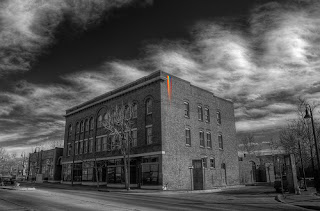 Chicago-area home sales were up slightly in 2011, the Chicago Tribune reports, but insiders in the real estate community are hardly optimistic about Illinois’ housing numbers. The Illinois Association of Realtors explained that the Chicago-area experienced a 1.3% gain in existing home sales compared to 2010, but that sales within the city of Chicago dropped 7.2% from 2010, for a total of 17,715 homes sold. However, 2011 ended on a high note, and that momentum has carried into the first few weeks of 2012—a hint of positive news, at least.
Chicago-area home sales were up slightly in 2011, the Chicago Tribune reports, but insiders in the real estate community are hardly optimistic about Illinois’ housing numbers. The Illinois Association of Realtors explained that the Chicago-area experienced a 1.3% gain in existing home sales compared to 2010, but that sales within the city of Chicago dropped 7.2% from 2010, for a total of 17,715 homes sold. However, 2011 ended on a high note, and that momentum has carried into the first few weeks of 2012—a hint of positive news, at least. Chicago-area housing sales were up in December 2011 due in part to nice weather conditions and low interest rates. Recently, Freddie Mac reported that the average rate on a 30-year, fixed-rate mortgage hit a new record-low of 3.88%. Overall, the Chicago area experienced a 17% rise in housing sales. Sale volumes also rose in Cook County (12%), DuPage (15%), Kane (21%), Kendall (26%), Lake (20%), and Will (33%) last December. Within the city limits, condo sales (5%) and single-family home sales (almost 8%) also rose.
Despite some positive change, the housing market is still struggling in some respects. Our Oak Park foreclosure attorneys know that falling home prices are a serious concern in the Chicago area and across the country. In 2011, the median home prices declined 11.9% for the Chicago area and 13.8% for the city. For example, the median price for a condo in Chicago was $183,000 in December, down 18.7% from a year ago. According to the Chicago Tribune, the median price for single-family homes also fell 1.7% to $135,000. Economists have predicted that housing prices will not stabilize until consumers are more confident about their financial security. And prices are not likely to rise until the supply of foreclosed homes diminishes.
Real estate agents report that the drop in home prices is due in part to buyers’ interest in foreclosed and short sale properties. A short sale occurs when a lender permits a property to be sold for less than the amount owed on a mortgage. Therefore, the lender ends up incurring a loss, usually because the market has gone downhill and the property is now worth less than the value of the current mortgage. Unfortunately, short sales do not necessarily release homeowners from some of their financial obligations, unless the lender and the borrower specifically agree. On the other hand, short sales are often used as an alternative to Chicago mortgage foreclosure because the process mitigates additional fees and costs associated with foreclosure for both parties.
Large backlogs of foreclosed properties mean that Oak Park and Chicago home prices are not likely to rise anytime soon. An increase in distressed properties is expected as more foreclosed homes are placed on the market at discounted prices in the coming months.
The minor gains in housing market have generated cautious reactions in the real estate community, accompanied by modest predictions for the future. The Oak Park and River Forest foreclosure defense lawyers at the Emerson Firm have been monitoring the state of the housing market for several years, and we know that while times continue to be tough, things are not as hopeless as they may seem. Whether you decide that foreclosure or a short sale is right for you, or whether you want to fight to keep your home, we have the expertise to guide you through the process.
See Our Related Blog Posts:



